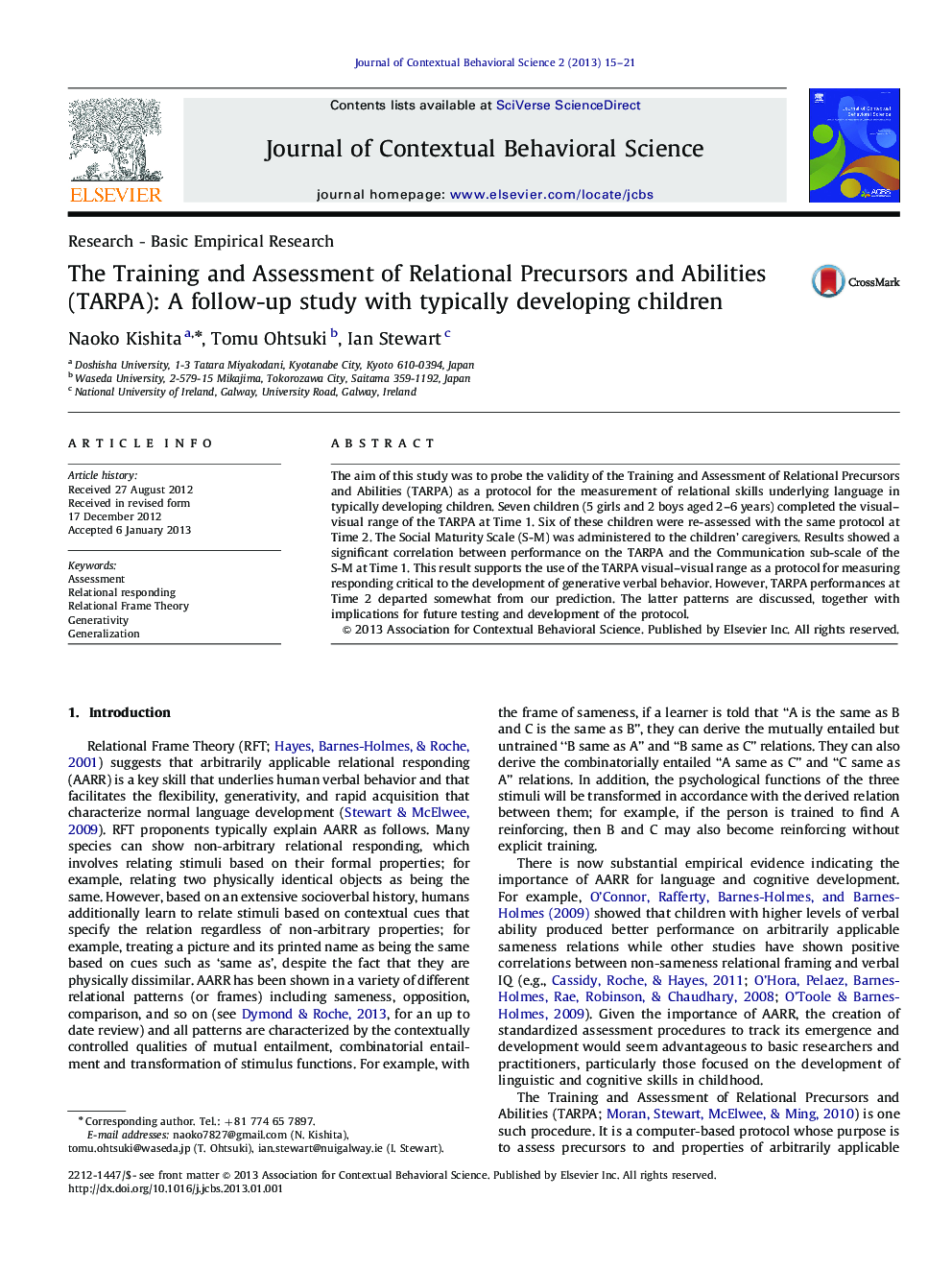| کد مقاله | کد نشریه | سال انتشار | مقاله انگلیسی | نسخه تمام متن |
|---|---|---|---|---|
| 911254 | 1473123 | 2013 | 7 صفحه PDF | دانلود رایگان |

The aim of this study was to probe the validity of the Training and Assessment of Relational Precursors and Abilities (TARPA) as a protocol for the measurement of relational skills underlying language in typically developing children. Seven children (5 girls and 2 boys aged 2–6 years) completed the visual–visual range of the TARPA at Time 1. Six of these children were re-assessed with the same protocol at Time 2. The Social Maturity Scale (S-M) was administered to the children' caregivers. Results showed a significant correlation between performance on the TARPA and the Communication sub-scale of the S-M at Time 1. This result supports the use of the TARPA visual–visual range as a protocol for measuring responding critical to the development of generative verbal behavior. However, TARPA performances at Time 2 departed somewhat from our prediction. The latter patterns are discussed, together with implications for future testing and development of the protocol.
► The TARPA significantly correlated with the language relevant sub-scale at Time 1.
► The TARPA changes closely tracked the language relevant sub-scale from Time 1 to Time 2.
► The TARPA visual–visual range measures a core language relevant skill.
► No correlation found for the TARPA and the language relevant sub-scale at Time 2.
► The lack of test–retest reliability suggest the replication with a larger sample.
Journal: Journal of Contextual Behavioral Science - Volume 2, Issues 1–2, 15 April 2013, Pages 15–21